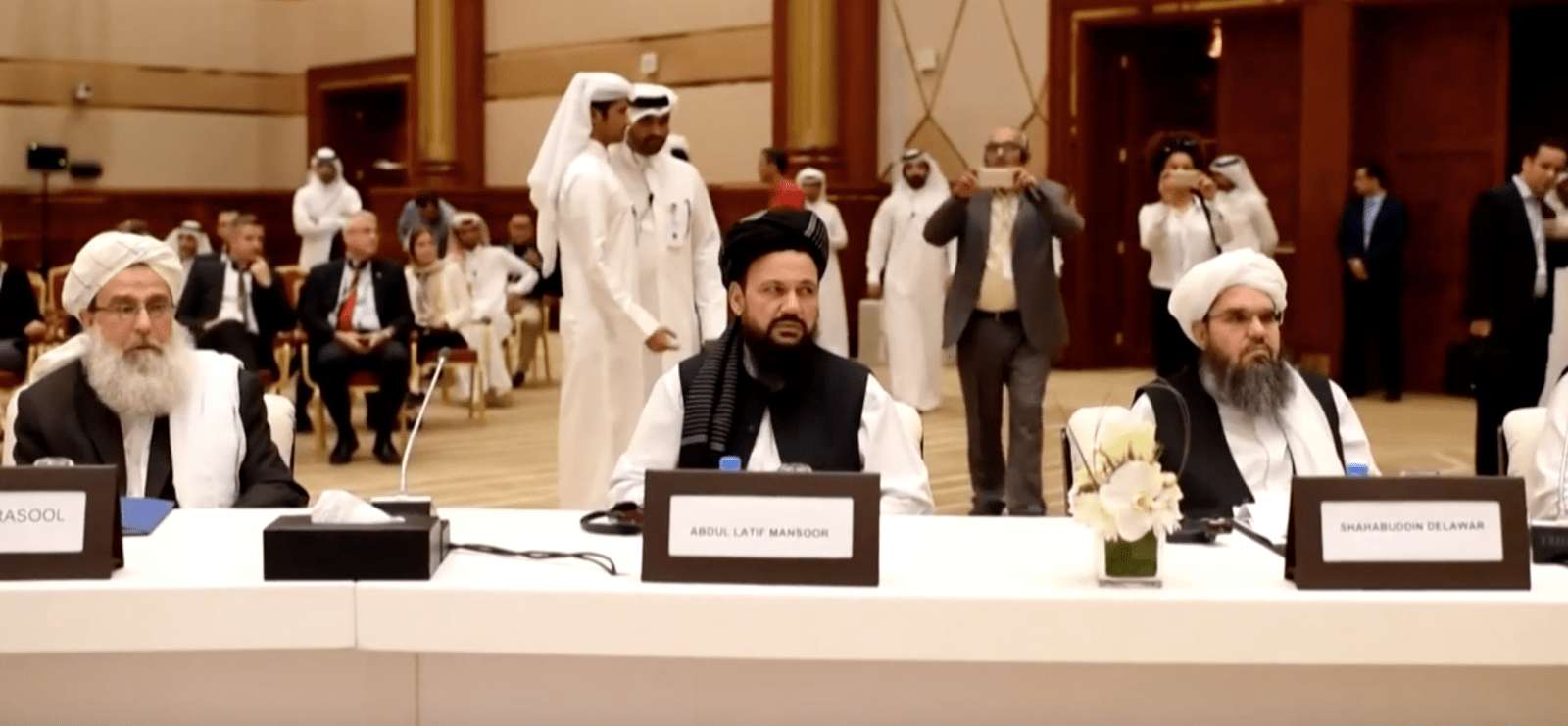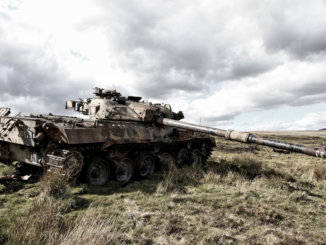 Calling off the peace process. The Afghan peace process, which has been on the go since the previous year, has endured a major blow. After months of negotiations on concluding the war in Afghanistan, President Trump decided to invite the Taliban to wind up the process. Trump came up with the idea of having President Ghani at the meeting as well, who was repeatedly marginalized during the whole negotiation process. Even more interestingly, the President came up with an inexplicable plan of hosting the Taliban at the prestigious Camp David.
Calling off the peace process. The Afghan peace process, which has been on the go since the previous year, has endured a major blow. After months of negotiations on concluding the war in Afghanistan, President Trump decided to invite the Taliban to wind up the process. Trump came up with the idea of having President Ghani at the meeting as well, who was repeatedly marginalized during the whole negotiation process. Even more interestingly, the President came up with an inexplicable plan of hosting the Taliban at the prestigious Camp David.
However, the hope of ending the lingering Afghan war has once again been impaired with Trump’s tweet announcing that he has called off the secret meeting with the Taliban that was supposed to take place in Camp David in the wake of the military offensive which killed one American soldier along with eleven others. Consequently, the peace process has been put on hold for some time. What would have been the eye-grabbing news of the year, was shattered into pieces at the eleventh hour.
What was the Peace Agreement? After nine rounds of talks, the peace process was in its final phases before it got cancelled. One aspect of the core agenda of the Afghan peace process was the intra-Afghan dialogue which would have steered the Taliban to negotiate with the Afghan government. Previously, the Taliban declared that they would not be talking to the puppet government in Afghanistan. After strenuous efforts, Zalmay Khalilzad, with help from Pakistan, was successful in convincing the Taliban to talk with the other Afghans. On 23rd September, negotiations were to commence between the Taliban and the Afghan government, had the deal been signed on the expected date.
Likewise, the terms of withdrawal were also settled: the US agreed to remove 5,400 out of the 13,000 troops, as early as 2020, in return for the Taliban ensuring the survival of the Kabul government, not using Afghan soil for terrorist activities and facilitating the Afghan forces in rooting out other elements of terrorism such as ISIS. In the last round of the Doha talks which concluded on 1st September, Khalilzad and the Taliban agreed to the text of the agreement and handed it over to the Qatari hosts.
Before the culmination of the talks, Khalilzad offered the Taliban to make a visit to Washington. The Taliban readily agreed on the premise that the visit be scheduled after the deal had been signed in Doha as they didn’t want to encounter any ignominy or appear as though they were surrendering by signing the deal in the presence of President Ghani. This became a conflicting point as Trump wanted to have his “Carter moment” and portray himself as the deal maker at Camp David and did not want the meeting to appear as an after-party of the deal.
What were the reasons for calling off the Peace Process? Apparently, the attack carried out by the Taliban unified Trump and his administration in deciding that the talks could not go on. Despite the fact that the attack was the stated reason for cancellation, it is highly unconvincing as the US has lost as much as 2,400 soldiers in this war with 16 killed this year. Hence, the recent attack is only a pretext for the cancellation, since there are a number of other reasons for deserting the peace talks.
Firstly, calling off the talks is associated with the heavy pressure that Trump has confronted from his own administration, in which many hardliners suggested a review of the strategy employed with the Taliban as it legitimized them and gave them leverage to dictate the terms of the agreement. Mike Pence was not in favour of inviting the Taliban to Camp David. Likewise, John Bolton was staunchly lobbying against the peace deal as he asserted that the deal would vandalize all previously won achievements in Afghanistan and therefore, he suggested that Trump should withdraw the troops without signing any deal with the Taliban. However, the sudden sacking of Bolton suggested that Trump might opt to reengage with the Taliban.
Secondly, choosing Camp David for the meeting was a “strategic blunder” and was not endorsed by other entities in Washington and that too, only two days before the anniversary of 9/11. Thirdly, committing to the ceasefire was a major source of contention between both the parties, as the Taliban were not willing to adhere to it prior to signing the agreement. Consequently, the administration might have orchestrated this strategy as leverage to compel the Taliban to accept ceasefire if they wanted to proceed. Moreover, the cancellation has paved way for the elections which will convene on 28th September, in which Ashraf Ghani is expected to win, thereby strengthening his position for future power-sharing. Hence, all this could be a stratagem to pressurize the Taliban and seize some concessions from them, such as compelling them to accept ceasefire and negotiate with the Afghan government before signing the agreement.
Will the peace talks resume? The peace talks are not absolutely dead as Trump has proposed since backdoor diplomacy will inevitably continue with the Taliban. Pakistan has made towering efforts in the peace process and the suspension of talks is least desirable for it. Imran Khan is determined to revive the peace talks as soon as possible and even said that he would be urging President Trump to resume them when he would meet him in Washington. The sudden cancellation has again brought Pakistan to play a central role. If at any time, a deal is chalked out, Pakistan will be recalled as the state which paved way for a safe American exit from Afghanistan.
More importantly, Trump acknowledges the fact that if he ends the war in Afghanistan, it will be instrumental for the 2020 Presidential elections. The other alternative, as Bolton had suggested, was to reduce the troops, yet this would be reflected as a forfeit by the superpower and would further augment the Taliban. Hence, a deal is crucial for Trump to secure a second term.
Taking into account that the draft is ready and approved by the US government, and that the elections are hovering over, it is likely that the agreement will be signed soon. On the contrary, if by any means the talks remain stalled, then it would inflame more violence and bloodshed throughout the country as the Taliban would launch deadlier offensives and other terrorist organizations, such as ISIS, might also attempt to take advantage of the situation.
Additionally, the Taliban leaders have also signalled that the door for negotiation is open for US. Hence, ruling out any breakthrough before the end of the year would not be rational. History has witnessed 18 years, full of violence and turmoil in Afghanistan in which the US has paid a heavy price. The US might be in a haste to end the war, yet they want to end it with some face-saving.
Afghanistan: The Graveyard of Empires. President Trump is unpredictable in many ways yet ending the war in Afghanistan was the right decision which should have been initiated by the previous administrations as well, instead of continuing with a war which only lead to more instability. Afghanistan is rightly called the “Graveyard of Empires”. The British Empire could not conquer it even at the crest of their global influence. Similarly, the Soviets stumbled to occupy it during the Cold war and today, the US is seeking a desperate exit despite having used the latest technology and spending a colossal sum of money. The balance of power in Afghanistan has not been altered despite years of attempts, as the Taliban control more territory than they occupied in 2001. Hence, peace through effective negotiations should be the top priority as it is a secret to none that the Taliban have the capacity to fight the US for a protracted period of time. Cancelling the talks at this time will materialize into escalated level of violence in future.
On the other hand, The Taliban must grasp the fact that the peace process may not materialize until they cease their violent activities. The strategy of using violence as leverage has its limit, after which they will inflict damage to their own selves.
A peace agreement will not pave the way for stability in Afghanistan right away as the conflict has transformed and taken a very complex form. The situation in Afghanistan after the US exit is uncertain, yet it is time that violence needs to be terminated by a ceasefire from both sides. The UN statistics suggest that in the first six months of 2019, more civilians have been killed by US and Afghan forces than by Taliban. Peace in Afghanistan is a dire requirement of the region. The current ongoing economic initiatives can play a massive role in shaping a better future for Afghanistan provided that the instability can be tamed.
![]()




Be the first to comment